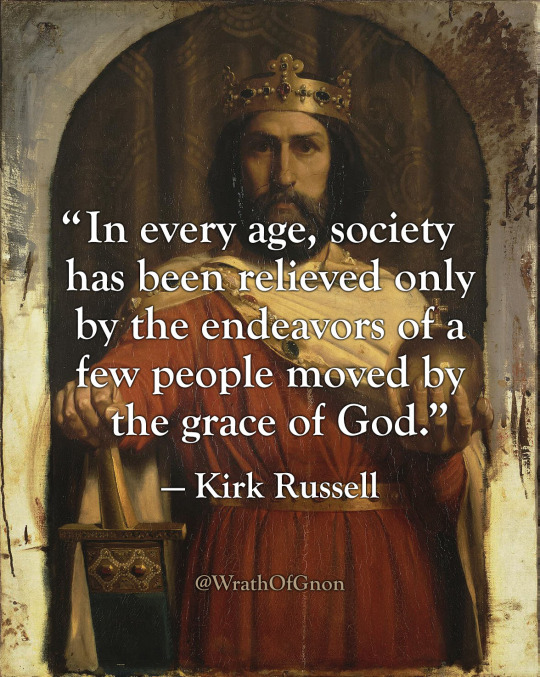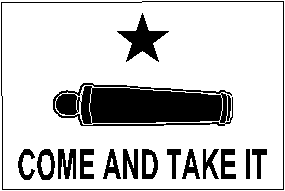On another dissident-right blog, a commenter is taken to task by several others; the charge is that he (or she?) is ‘too negative‘, especially towards other White ethnic groups or nationalities. I know that this attitude, this idea that one must not speak critically of other White ethnicities, is often de rigueur among WNs, because their belief system holds that our White skin is our identity, not our specific ethnic group or tribe. By this particular tenet (which seems to place me outside the WN camp) ethnicity is too narrow an identification; survival necessitates that we identify with all people of European descent or else perish, because we cannot allow the petty divisiveness of ethnic identities; doing so is inviting our obliteration as a race.
However there are some quibbles here; some WNs define the White race more narrowly, excluding Mediterraneans, broadly speaking. The writer H.P. Lovecraft would probably have fallen into this camp, although I believe no one used the term ‘White Nationalist’ in his day, to my knowledge. I believe he called himself an Anglo-Saxonist, identifying most with his particular ethnic group, though he acknowledged he didn’t fit the stereotype of the blond, Viking-looking Northman which is important to some Nordicists, who believe very much in going by phenotypes. (And yes, phenotypes are useful).
However, though Lovecraft was Anglo-Saxonist by his own description, he embraced Northwestern/Northern Europeans generally as being his kinsmen. This is expressed in his personal writings. He did not think that all Europeans were his kinsmen in the same way that Northern Europeans were, and especially Englishmen.
Lovecraft, then, is often criticized by those who think that Lovecraft was excluding them or their ancestors from his kin group; they see his opinions as being bigoted or lacking in solidarity with all Europeans, which is now becoming the correct position amongst many on the pro-White or WN or Alt-Right side.
To be accused of being too narrow in one’s loyalties or identifications carries with it the implicit, or sometimes explicit, charge of jeopardizing White survival by refusing to embrace a pan-European identity in preference to narrow loyalty to one’s nearer kin. The rhetoric goes that only by uniting as one White race, irrespective of any genetic, linguistic, religious, or cultural distinctions, can Whites/European-descended people survive. Unite, by putting aside your petty ethnic loyalty, or die, your race forever extinct.
But is this the only choice? Is this the one option for Whites or European peoples?
History shows us many examples of genetically similar peoples, closely akin, who were frequently at war with each other. To the outsider, the differences between such clashing peoples is often not detectable. Ukrainians and Russians appear similar to most casual outside observers, and they are at odds. Also, many people cannot see why the Protestant Northern Irish (Ulstermen) and the Catholic Irish of the North have a long history of bloodshed between them. No, it is not just about religion, but about ethnicity and different cultures as well. Granted, though, the ethnic differences are not all that great, as DNA shows. Likewise with the Irish and the English; all the British Isles peoples are fairly close genetically, but to each people, especially those identifying as ‘Celtic’, the differences are all-important.
If these closely-related peoples cannot get along, how can we expect peoples as dissimilar as Greeks and Scandinavians, or Finns and Portuguese, or Icelandic people and Corsicans, to think of one another as equally brothers, except in the most abstract sense?
We’ve seen how well that has worked out in America where we are all officially ‘one people’ and yet many ethnicities still have frictions between them despite long-time contact and the ‘unifying’ factor of Americanized culture. Yes, even people of differing European ethnicities have clashed and prefer to maintain their own cultures and enclaves.
How many Europeans and European-descended people on this planet are there? We are scattered widely from South America to Australia/New Zealand to Iceland and Greenland to North America, Southern Africa, and to Europe proper. How can we come to think of such a dispersed and disparate collection of peoples as equally our brethren, having an equal claim to our loyalty and support? I say it’s not practicable. Just as with the ‘One World’ mentality, our loyalties and attachments cannot be stretched that far without being so attenuated as to be nonexistent. We are built for concentric circles of loyalties, with those of our nearest genetic connections, our immediate families, being the strongest bonds, and as the circle of loyalties go outward, the bonds necessarily grow weaker. Those who are most distant not only geographically but genetically command the least claim on our obligations and affections.
It’s all but impossible for mere humans to love something distant and abstract. This is the weakness of the ‘One planet, one people’ nonsense, which is the globalist mantra. Brainwashed churchians and lefties notwithstanding, we just can’t love the distant and the unseen in the same way that we love those nearest to us and closest to us by blood bonds.
So if it’s sin in the pro-White world to prefer one’s own close kinsmen over far-distant relatives, then I plead guilty. No doubt I would be eighty-sixed from the blog I refer to in the opening paragraph of this post for being ”divisive” and “negative” towards my brothers from countries on the other side of the globe, and so be it. After all, in this increasingly New-Age, pop-psychology oriented world we live in, being “negative” is Sin Number One. Thou Shalt Not Be Negative, saith the feel-good law as expounded by people like Oprah and Dr. Phil and probably Joel Osteen. And especially shalt thou not be negative towards The Other, the Sacred Other. For most people, the Sacred Other about whom we must not be negative means specifically People of Color, or Immigrants of whatever color.But what if the truth is negative?
For the Pan-Europeanist, we must not be negative towards the Other European, even if they do in fact have bad cultural habits or at least, if you shrink from making ‘value judgments’ then let’s say some Others have traits that are just not compatible with our own ways of doing things.
For example, when I was in the New York City area, I quickly learned that having to ‘grease people’s palms’ was a necessary part of getting things done. You will be told that something can’t be done until you slip someone some money and suddenly it can be done. You’ve heard of the ‘baksheesh’ system; it’s not just in the Middle East. In Mexico it’s called ‘mordida.’ This kind of thing seems most common in Mediterranean countries or peoples, or those derived from that area. It isn’t generally an Anglo-Saxon thing.
So yes, in order for us to accommodate peoples from different cultures we end up absorbing some corrupt practices and habits. We compromised who we were, when we decided that we are all brothers under the skin.
Something has to give when disparate peoples are blended together. Most importantly of all, to be told that all Europeans are as brothers despite strong differences is just one step away from the multicult worldview that ‘we are all one race, the human race’, and that we all bleed red. We end by acquiescing in falsehoods, these denials of difference, and we live a lie. Christians cannot do this, not if they wish to live up to their faith.
Now we live under a tyranny of lies in which people are being punished, even prosecuted and jailed, for speaking ‘ill’ of some protected group, because noticing differences and speaking unpleasant truths offends. So we have let truth be suppressed in many instances. Are we not to note the drawbacks of having those unlike ourselves living amongst us? Shall we choose, if we ever get out from under the globalist tyranny, to live in multicultural societies made up of disparate Europeans? It would be preferable to the Coudenhove-Kalergi nightmare, but it would still be fraught with problems. A European mega-nation would also be polyglot, multicultural, and multilingual, unless we want to impose one language and one culture.
To want to preserve our own peoples, languages, cultures, and traditions does not mean ‘hating’ our fellow Europeans/Whites. To say that ethnoloyalty is hatred of outsiders is the kind of cheap rhetoric that the leftist/multi-cultist uses towards us now. It should be beneath WNs or any pro-Whites to use such manipulation.
We can surely make common cause, offer moral and other support to our counterparts in Europe and elsewhere without trying to invent some pro-White version of the EU, which itself is proto-globalist. We can be allies with our kinsmen without putting them on a par with our more immediate kin, or without giving them all free rein to enter our countries at will. To imply otherwise is dishonest or foolish.
Personally I have always enjoyed other cultures at an arm’s length, and I am not in the habit of being hostile to people because of their different ethnic origins or even racial origins. But I still maintain that good fences make good neighbors. We all have relatives that, though they are our kin, we would not welcome as permanent guests in our homes. Why, then, should we be expected to welcome distantly-related strangers into our countries? Remember our countries are also our homes. Just as in English tradition, every man’s home is his castle, so our countries are our homes, our castles. They are our birthright and our rightful inheritance. Though the pan-Europeanist thinks that I must share my country with any White person who stakes a claim here, would those people reciprocate and give me the right to enter their country, and bring my extended clan with me? To impose this ideal on us all is depriving us of our sovereignty and our birthright, our homes, regardless of who the usurpers are.
And I ask this: what normal person, given that our Western countries are all being flooded with immigrants, thinks that it should be wrong to criticize these uninvited guests? I would say there is something off about people who still think that it is some kind of sin to object to more foreign neighbors, given the way in which our countries are being overwhelmed by strangers.
Are honest, factual, criticisms of other European peoples now ‘hatefacts’ as with racial Other groups? Is that acceptable?
I honestly suspect the motives of anyone who would chastise a kinsman for his honest feelings, while rushing to the defense of the poor immigrant, whoever he is. Loyalty is still a virtue, and loyalty to kin and kind comes first.
And real loyalties and loves must necessarily be narrow. We cannot be loyal to all things and all peoples, else it is not loyalty but promiscuity. Love by nature is exclusive, reserved for the closest and deepest bonds, else it is not love.


